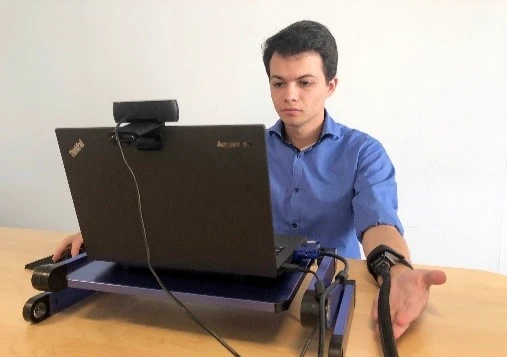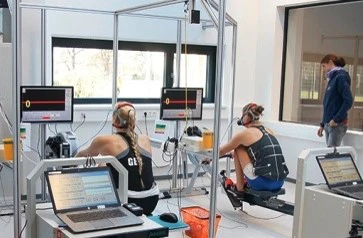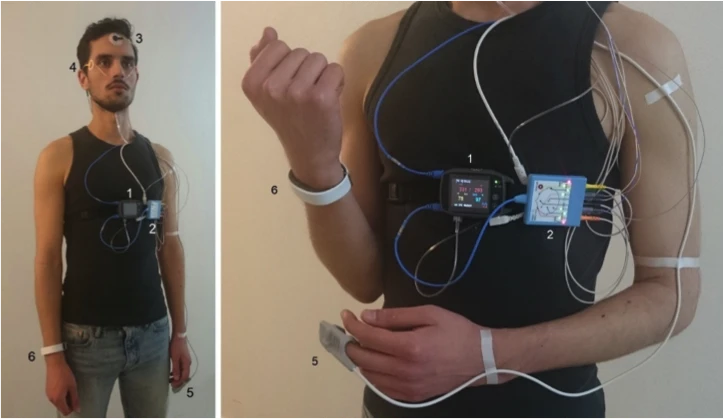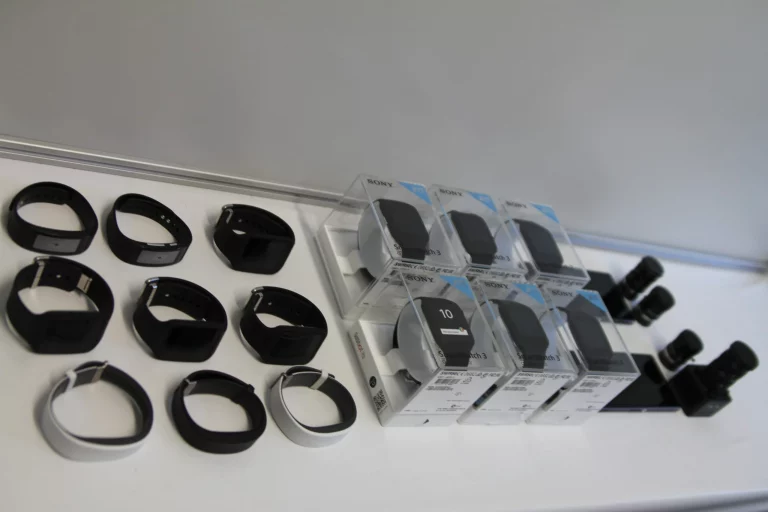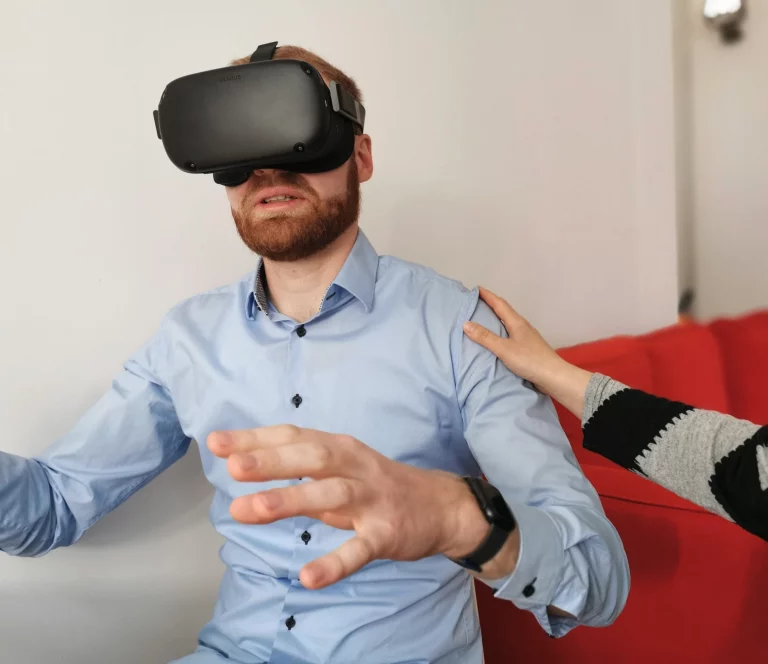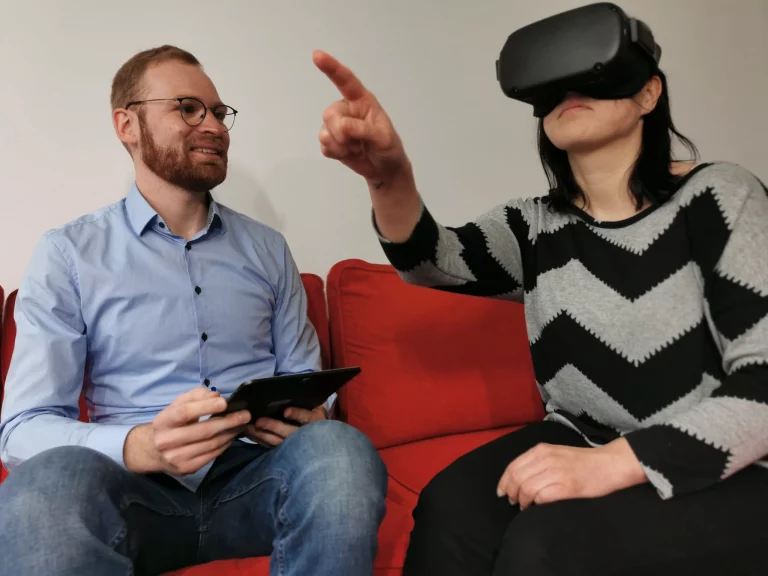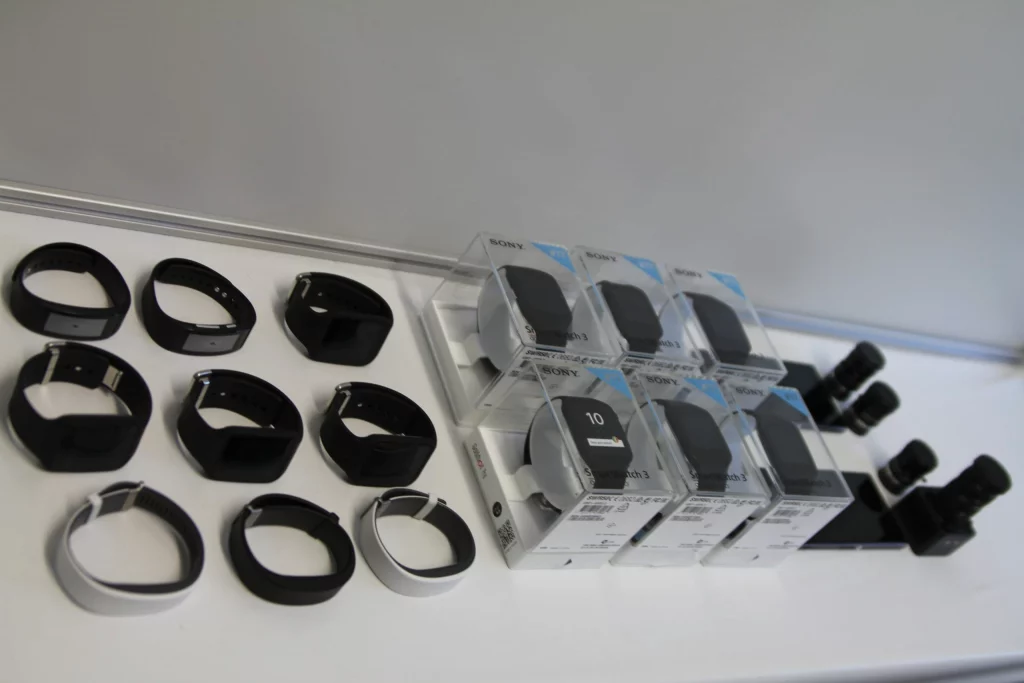
Smart Wearables in the Context of Corporate Health Management
Market Overview and Feasibility Study
Project Justification

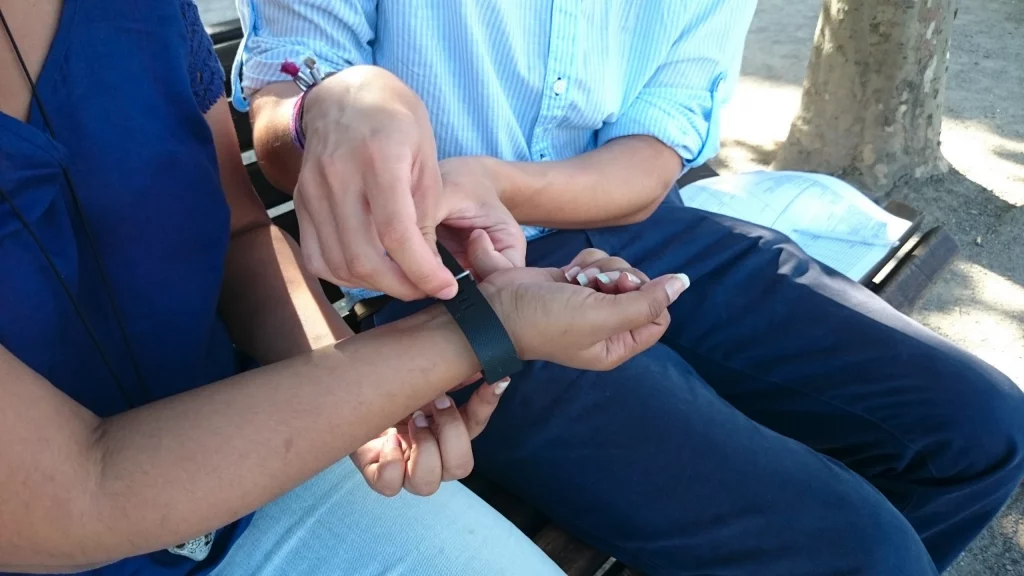
Evaluated fitness trackers (left) and mounting of a fitness tracker (right)
Our Approach
The project aimed to evaluate the usage of fitness trackers in business environments. A feasibility study was conducted to examine the value of fitness trackers, apps, and combined services. Corresponding smart tools were tested in a living lab environment and within a field study with employees. The living lab study was focused on a technical analysis, testing for instance the validity, stability, and robustness of the trackers. To examine the functionality of the trackers, their outputs were compared to traditionally assessed psychological parameters, for instance based on heart rate detection, accurate sleep measurement, as well as activity and rest detection.
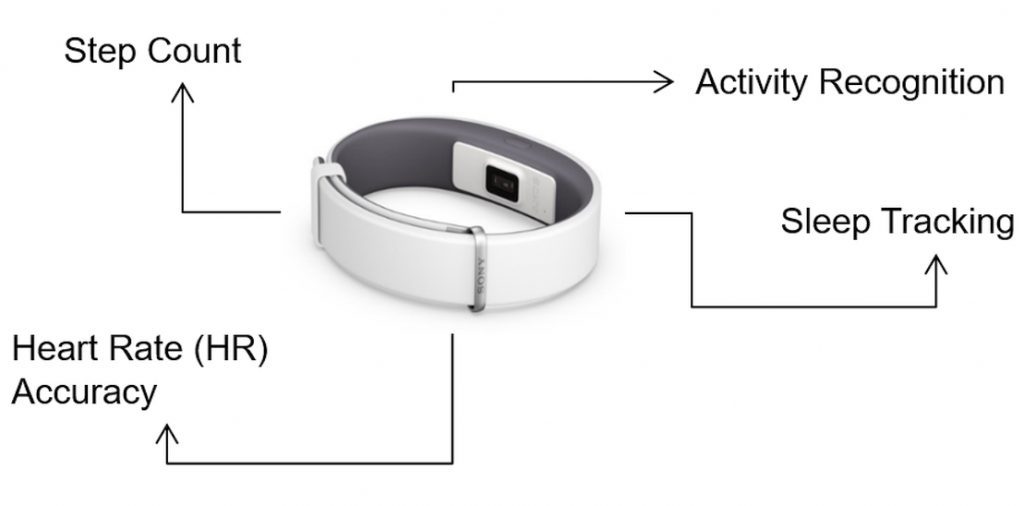
Insights and Outcomes
The focus of the field study was the evaluation of the perceived usability of fitness trackers in the actual working environment. Based on the outcomes, a catalogue with requirements and recommendations for a successful application of fitness trackers in business environments was developed. Further, a basis was formed to draw conclusions and receive recommendations for a successful integration of fitness trackers in health management concepts.
Successful Projects
Development of a screening and support portal as an extensive psycho-social diagnostic mode for refugees
Features extraction of auditory, visual, and physiological data for diagnosis system of affective disorders
A holistic view of interrelated frailties to reduce frailty risk by improving overall well-being
Feedback-assisted rehabilitation after surgery of the anterior cruciate ligament
A contribution of German elite sport to smart health promotion
Market overview, legal and technical requirement analysis, living lab study, and implementation of corporate health management programs
Desktop and virtual reality-supported module variants to bridge waiting times between therapy sessions and enrich ambulant therapy
Support of acute therapy and relapse prevention in the deep psychological treatment





